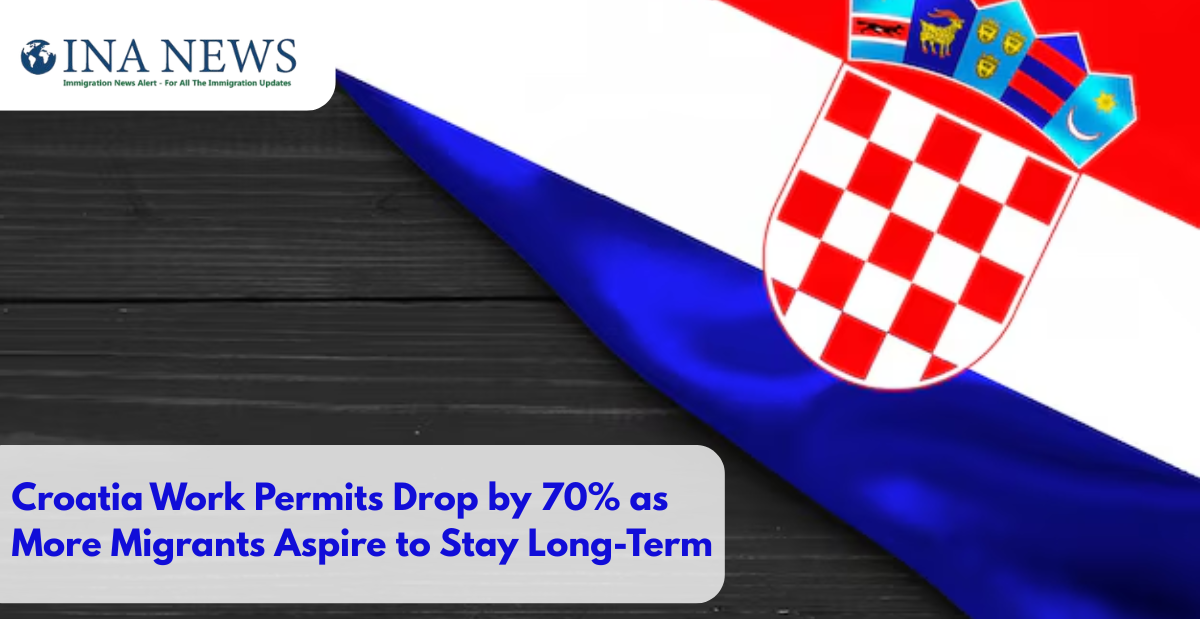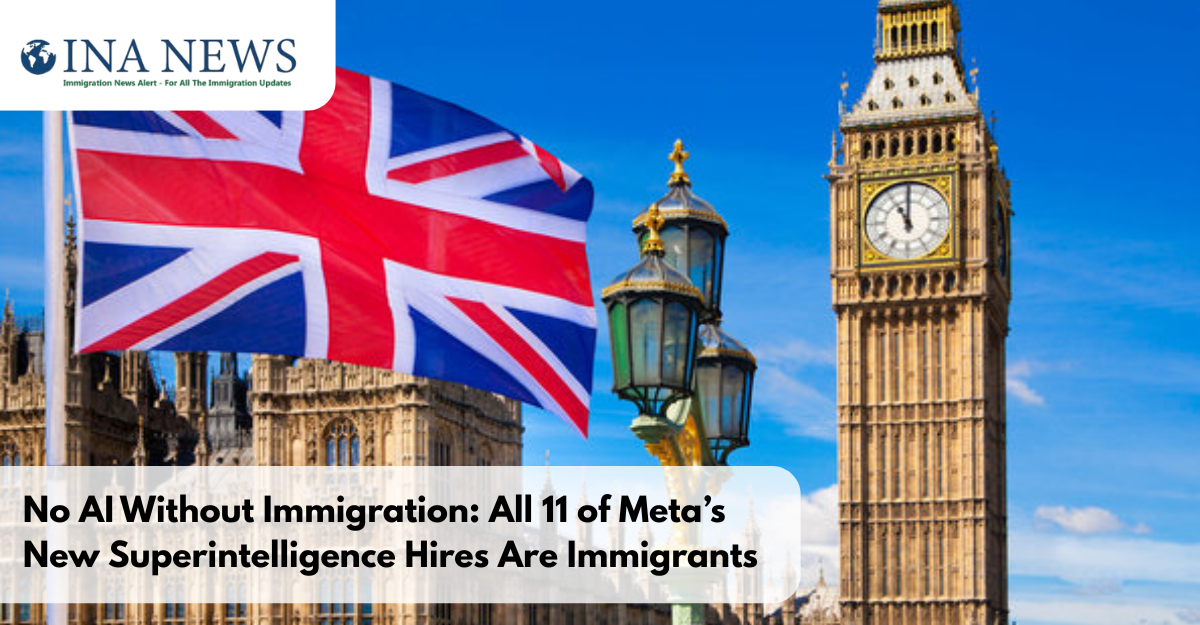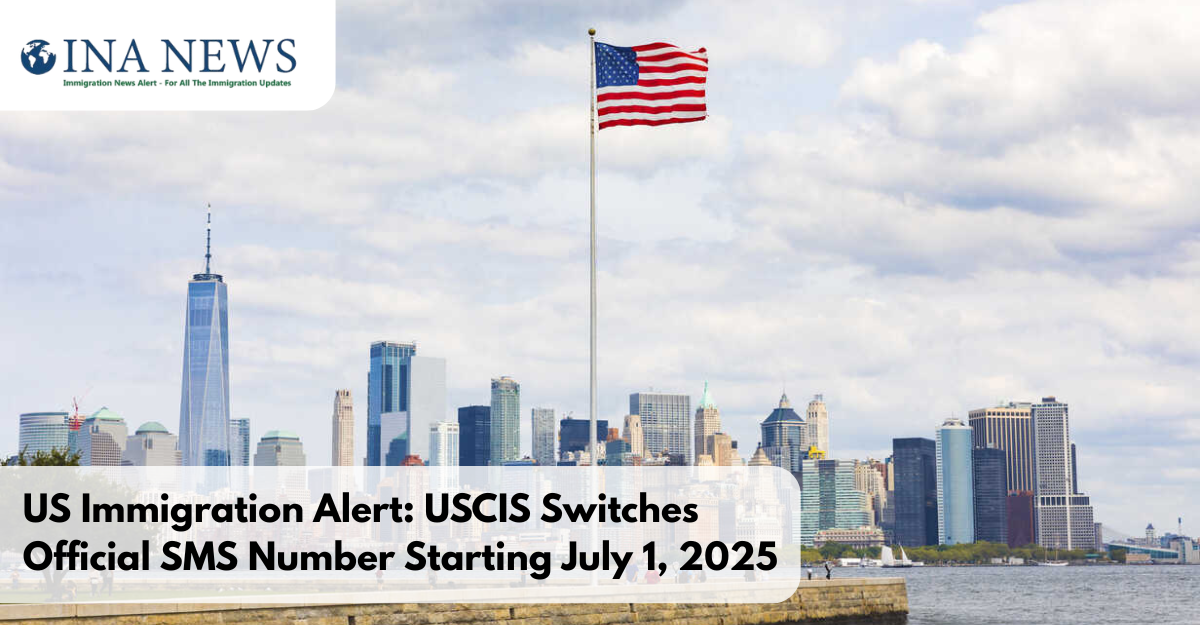Starting July 22, 2025, the UK has implemented sweeping immigration reforms—tightening work visa eligibility, raising salary thresholds, and closing low-skilled routes, such as care-worker sponsorships. The move aims to slash net migration while aligning the system with domestic workforce demands across key sectors.
Indian, Nigerian, and Filipino migrants in mid-skilled roles are among the hardest hit. Employers now face higher salary obligations, while students must navigate tougher dependent rules and shorter post-study work stays. With a 10-year settlement period and stricter English tests under review, this marks the start of a long-term immigration reset.
Key Immigration Rule Changes Effective July 22, 2025
- Skilled Worker visa tightened
- Only jobs at RQF 6 (graduate-level) or above qualify. Around 100–180 medium-skill roles (RQF 3–5) removed unless listed by the Migration Advisory Committee (MAC).
- A transitional “Temporary Shortage List” and expanded “Immigration Salary List” will allow some RQF 3–5 roles until Dec 31, 2026.
- Only jobs at RQF 6 (graduate-level) or above qualify. Around 100–180 medium-skill roles (RQF 3–5) removed unless listed by the Migration Advisory Committee (MAC).
- Salary floors increased:
- The standard skilled worker salary threshold rises from £38,700 to £41,700.
- PhD-level roles: £37,500; STEM‑PhD & ISL roles: £33,400.
- The health/care threshold remains £25,000 for continuing staff only.
- The standard skilled worker salary threshold rises from £38,700 to £41,700.
- Care‑worker route closed
- No new overseas care-worker sponsorships after July 22.
- Existing care workers can remain and extend their visas until 2028.
- No new overseas care-worker sponsorships after July 22.
- Dependants restricted
- New RQF 3–5 visa applicants (via ISL/TSL routes) cannot bring dependents, except UK-born or sole-parent children.
- New RQF 3–5 visa applicants (via ISL/TSL routes) cannot bring dependents, except UK-born or sole-parent children.
- Graduate visa shortened
- Post-study work stay cut from 2 years to 18 months.
- Post-study work stay cut from 2 years to 18 months.
- English‑language & sponsor compliance strengthened
- Mandatory English for visa dependents is being proposed.
- Tighter scrutiny of student visas and sponsoring institutions.
- Mandatory English for visa dependents is being proposed.
- ETA rollout & ILR timeline under review
- ETA (Electronic Travel Authorisation) is now mandatory for visa-free nationals from many countries.
- Proposal under review to stretch ILR (Indefinite Leave to Remain) from 5 to 10 years, with earned-settlement provisions.
- ETA (Electronic Travel Authorisation) is now mandatory for visa-free nationals from many countries.
Key Figures at a Glance
| Metric | Pre–July 22, 2025 | Post–July 22, 2025 |
| RQF 3–5 job eligibility | YES | NOT unless on the AC list |
| General salary threshold | £38,700 | £41,700 |
| Graduate visa duration | 24 months | 18 months |
| Care-worker visas | Open | Closed |
| ILR eligibility | 5 years | Under review → 10 years |
Significance of the July 2025 Immigration Reforms
- The UK government says the reforms will reduce net migration by 98,000–100,000 annually, especially from lower-wage sectors like adult care.
- Sectors heavily dependent on international talent—like IT, health, hospitality, and logistics—must now adapt hiring practices, boost salary offers, and prepare for longer, more expensive sponsorship cycles.
- For Indian professionals in particular, the window before July 22 was crucial for applying under the previous rules. Roles previously accessible under RQF 3–5 (e.g., technicians, care assistants, chefs, support workers) now face either complete exclusion or time-bound access under special shortage lists.
Implications For Applicants & Employers
- Applicants:
- Those aiming for UK jobs in health or tech must meet stricter salary and education levels.
- Postgraduates should plan around the shortened work period (18 months instead of 2 years).
- Family migration routes are shrinking, especially for dependents of mid-skilled workers.
- Those aiming for UK jobs in health or tech must meet stricter salary and education levels.
- Employers:
- Employers must reassess job offers to ensure they meet RQF 6 or above and comply with the new £41,700 salary threshold.
- Transition away from overseas care hiring.
- Prepare for audits and ensure sponsorship compliance under the revised regime.
- Employers must reassess job offers to ensure they meet RQF 6 or above and comply with the new £41,700 salary threshold.
- Long-term outlook:
- English-language minimums will likely become mandatory across categories.
- Future reforms may include higher visa fees, longer ILR waiting periods, and tighter family reunification rules.
- English-language minimums will likely become mandatory across categories.
Impact on Indian Migrants (Effective July 22, 2025)
- Skilled Worker salary now set at £41,700 (up from £38,700 ) – hits mid-level jobs in tech, hospitality, retail.
- Family visa threshold raised to £29,000 – may delay reunification for newly settled Indians.
- Health & care workers (nurses, paramedics) exempt – salary stays around £23,200, but only via CQC-registered sponsors.
- Shortage Occupation List scrapped – affects Indian chefs, engineers, and tradespeople who relied on lower salary thresholds.
- Student visa rules tighten – no dependents unless in govt-funded research; must land a Skilled Worker job right after graduation.
- Digital eVisas roll out from July 15 – no more passport stickers; all applicants must maintain a UKVI online account.
- Processing delays are likely due to stricter checks and higher application volumes across the Skilled Worker and Family routes.
The UK’s new rules mark a turning point in migration policy. The days of large-scale hiring for mid-skilled roles, particularly in the care sector, are starting to wind down. The system now favors those with higher salaries, advanced degrees, and long-term UK integration potential. Anyone planning to move now needs to rethink their timelines and double-check job codes.






